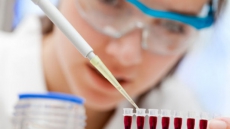The absence of a protein known to reduce cancer risk can explain why brain tumours occur more often in males and are more harmful than similar tumours in females.
Researchers at Washington University School of Medicine in St. Louis found that retinoblastoma protein (RB) - a protein known to reduce cancer risk - is significantly less active in male brain cells than in female brain cells.
Glioblastomas, the most common malignant brain tumours, are diagnosed twice as often in males who suffer greater cognitive impairments than females and do not survive as long.
"These results suggest we need to look at multiple pathways linked to cancer, checking for sex differences. Sex-based distinctions at the level of the cell may not only influence cancer risk but also the effectiveness of treatments," explained senior study author Joshua Rubin.
Scientists have identified many sex-linked diseases that either occur at different rates in males and females or cause different symptoms based on sex.
However, Rubin and his colleagues knew that sex hormones could not account for the differences in brain tumour risk.
In lab experiments, the team evaluated three genes to see if they were naturally less active in male brain cells.
The scientists found RB was more likely to be inactivated in male brain cells than in female brain cells.
When they disabled the RB protein in female brain cells, the cells were equally susceptible to becoming cancers.
The protein RB is the target of drugs now being evaluated in clinical trials.
"At the very least, we should think about analysing data for males and females separately in clinical trials," Rubin stressed.
The study appeared in The Journal of Clinical Investigation.





